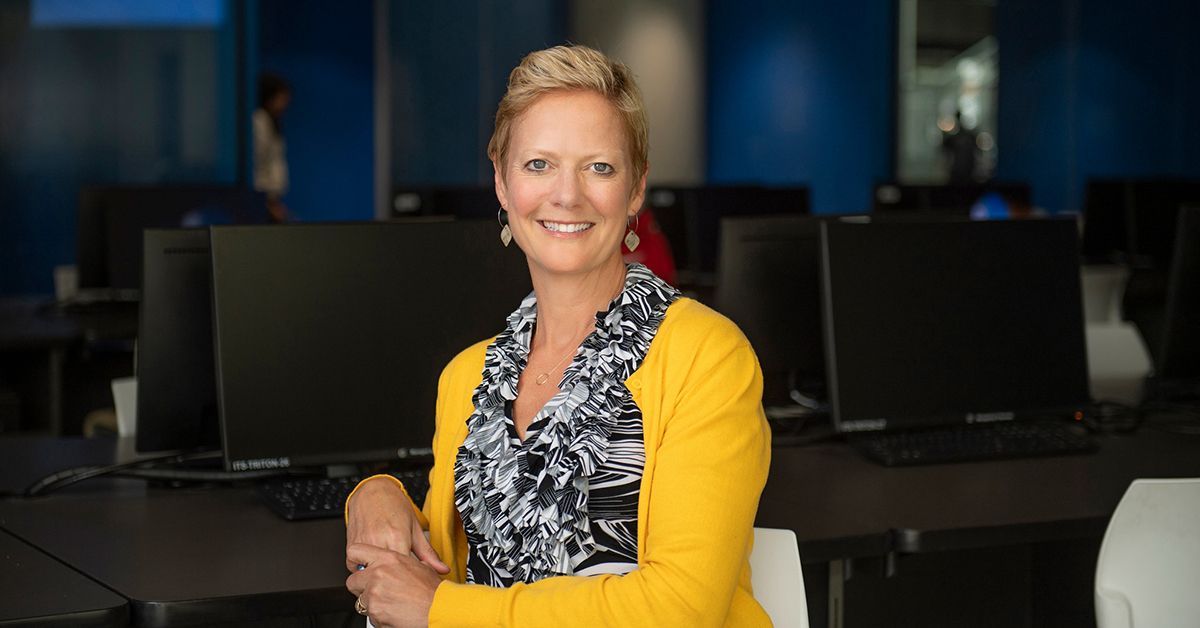Source: https://today.ucsd.edu/story/the-other-ai
The Other AI
The impact of artificial intelligence on academic integrity.
Published Date
By:
Topics:
Share This:
Article Content
This story was published in the Fall 2023 issue of UC San Diego Magazine.
Tricia Bertram Gallant, an expert on integrity and ethics in education, and director of the Academic Integrity Office and Triton Testing Center at UC San Diego shares her thoughts on artificial intelligence in the university setting.
1. What is the role of the Academic Integrity Office at UC San Diego?
The Academic Integrity Office promotes and supports a culture of integrity to reinforce quality teaching and learning. We train teaching assistants and faculty on how to prevent cheating and to establish a culture of integrity in their classes. And because of my background, I also advise faculty on creating assignments and writing syllabi and pedagogical choices. We work with students in terms of preventative education, but also after-education with students who have violated academic integrity to leverage the infraction as a teachable moment.
2. How do you think AI will change higher education?
It will change everything. AI will allow us to teach things differently. In the past, students attended universities to access all the knowledge of the world, from the best minds and the best libraries. You don’t need to go anywhere now; you can access that information at home through the internet. Our physical, in-person universities need to be the place where students can be with other people, learn from each other, practice skills and find a mentor. The value of a university is in its people.
3. How can AI support teaching at UC San Diego?
Studies show that active, engaged classrooms lead to better learning outcomes. It’s exciting for me to think about the possibility that AI can free up faculty and support staff from designing, printing, distributing and grading exams so they can spend more time mentoring and coaching students. We can use AI to help faculty cognitively offload a whole bunch of things so they have more bandwidth to design highly relevant learning activities that captivate and inspire students, even in large lecture halls. It would allow us to offer an individualized and meaningful educational experience. I think AI will be the impetus to finally force higher education to change — to become the active, engaged learning environment that it was always meant to be. That it has to be.
4. Can UC San Diego students use ChatGPT and other AI-assisted technologies?
It’s up to the faculty and the learning objectives for their individual courses as to whether ChatGPT or other generative AI can be used. And that makes it complicated. But I ask the students: Did the professor say you could? If they didn’t, you need to ask, especially if your use of the technology will undermine the learning objectives of the course. For instance, if you’re in a Japanese class and you write something in English and give it to ChatGPT to translate it for you, well, that’s cheating.
5. Should ChatGPT be integrated into coursework?
Yes, we should teach students how to properly use ChatGPT and other generative AI tools. They should acknowledge the use of the tool when submitting assignments. We should teach students critical AI literacy, including how it’s prompted and how they need to evaluate the information that comes from it. That will be a huge skill for our students, who will most likely utilize some sort of AI in their future workplace.


No comments:
Post a Comment